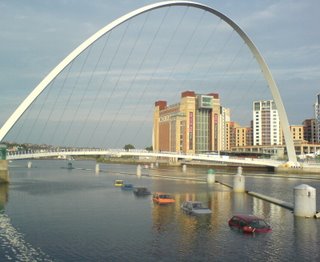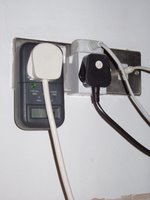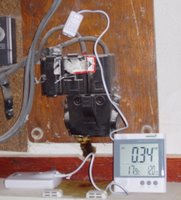Guardian Eco-nasties
Post-Stern, the press is struggling between the need to do the right thing and the need to pay for it. If you're reading this then you've probably had enough of it, but I recommend Monbiot's 10 point action plan.
Back to Eco-living...
The Guardian has a lovely little section today on smalll eco-nasties - Olive Oil from New Zealand, Disposable Garden Furniture Wipes, and, my favourite, the Fairy Power Dishwashing Brush. That's right, you don't even have to move your wrist.
My vote for a completely unnecessary eco-nasties goes to outdoor heaters in pavement cafes. Never mind the idiocy of burning gas to make electricity to heat the atmosphere, but this summer I've had to ask for them to be turned off because it was warm enough already and I had sweat pouring off me. 900W each - just count the number in your nearest bistro.
Oh, yes, and despite its attack on eco-taxation, the Sun has a naked green lady dispensing saucy eco-living tips, mainly chosen for their pun-tastic titles.










